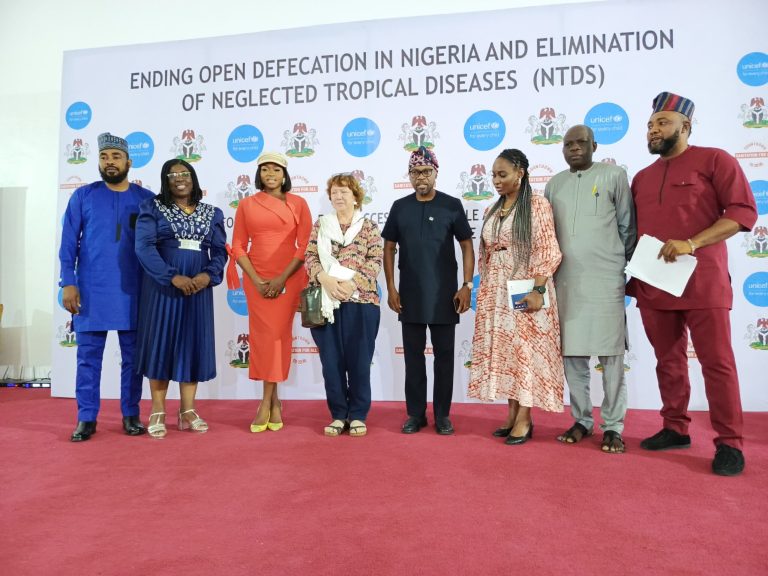The United Nations Children’s Fund (UNICEF) and the Federal Government have sought the support of stakeholders, especially the media, in achieving an Open Defecation Free (ODF) status in the country.
The Chief of Water, Sanitation, and Hygiene (WASH) at UNICEF, Jane Bevan, and the Deputy Director of the ‘Use the Toilet’ Campaign at the Federal Ministry of Water Resources and Sanitation, Mrs. Chizoma Opara, emphasized the need for public support in the government’s and partners’ efforts to eliminate diseases from society.
The two officials spoke in Lagos on Thursday during a two-day media dialogue titled, “Ending Defecation in Nigeria and Elimination of Neglected Tropical Diseases (NTDs).”
Bevan stated that the organization has consistently advocated for an end to open defecation in the country.
However, she noted that UNICEF cannot achieve this goal alone without the support of the government at all levels and the media to raise awareness about the importance of ending the practice for a healthier life.
According to her, “We can’t do this alone; we want Nigeria to be open defecation-free. We need everyone on board—government, private sector, banks, and people from all walks of life.
“The media plays a huge role in publicizing this accurately. It was mentioned yesterday that India’s campaign was successful because people heard about open defecation everywhere—in the media, schools, and hospitals.
“To achieve the same impact in Nigeria, we need to engrain in people’s minds that defecation should only take place in toilets.
“We all need the political will to tackle open defecation. We must make this issue real and prioritize handwashing. This is what the media must help to promote so we can end open defecation in the country.”
ALSO READ: Hunter kills one, injures two others in Lagos
On her part, Opara expressed concern that 48 million Nigerians still practice open defecation, stressing the need for immediate action from all stakeholders to reverse this negative trend.
Opara stated that this action, if effectively managed, could reduce the transmission of NTDs and foster improved sanitation and hygiene practices.
According to her, “By addressing open defecation, we can significantly reduce the transmission of NTDs. Improved sanitation and hygiene practices can break the cycle of infection, protecting vulnerable populations, especially children and women.
“Through this dialogue, we aim to raise awareness about the importance of ending open defecation and its impact on NTD elimination. We will explore strategies for collaboration, share success stories, and discuss challenges in achieving a Nigeria free from open defecation and NTDs.”
Also speaking, a WASH Specialist at UNICEF, Monday Johnson, explained that simple hygiene management, especially of water, would greatly help in preventing NTDs in society.
Johnson further added that encouraging behavioral change, particularly in regular and proper handwashing habits, would also help eliminate diseases.
Other highlights of the dialogue included a panel discussion featuring WASH experts from UNICEF, WaterAid, and the United States Agency for International Development’s Lagos Urban WASH (USAID-LUWASH), alongside representatives from the private sector, including influencer and musician Waje.
The panel provided insights into how various stakeholders could collaborate on the campaign to end open defecation in Nigeria.
